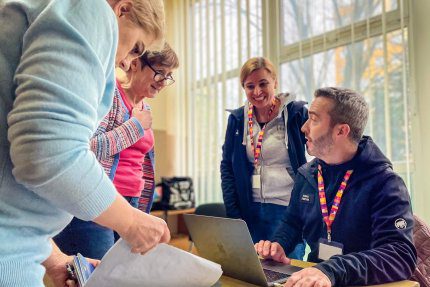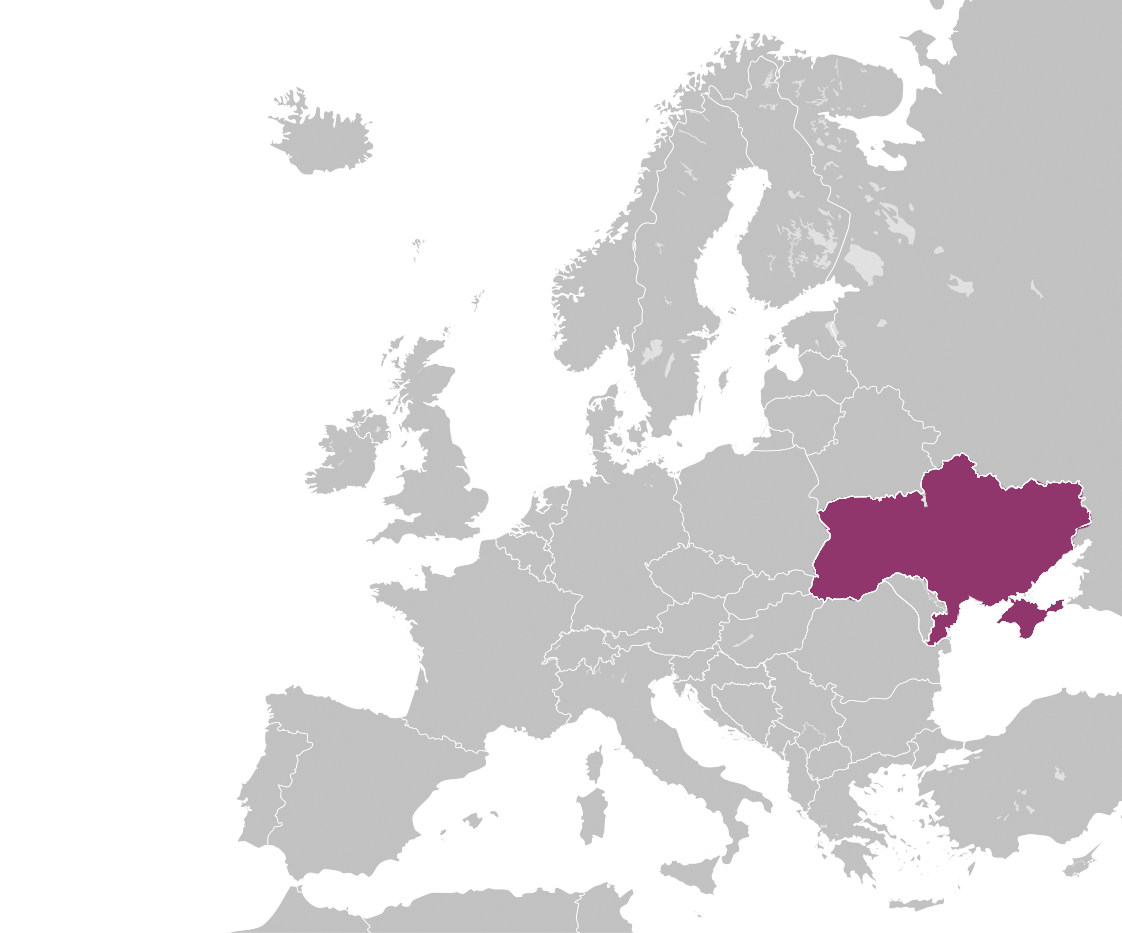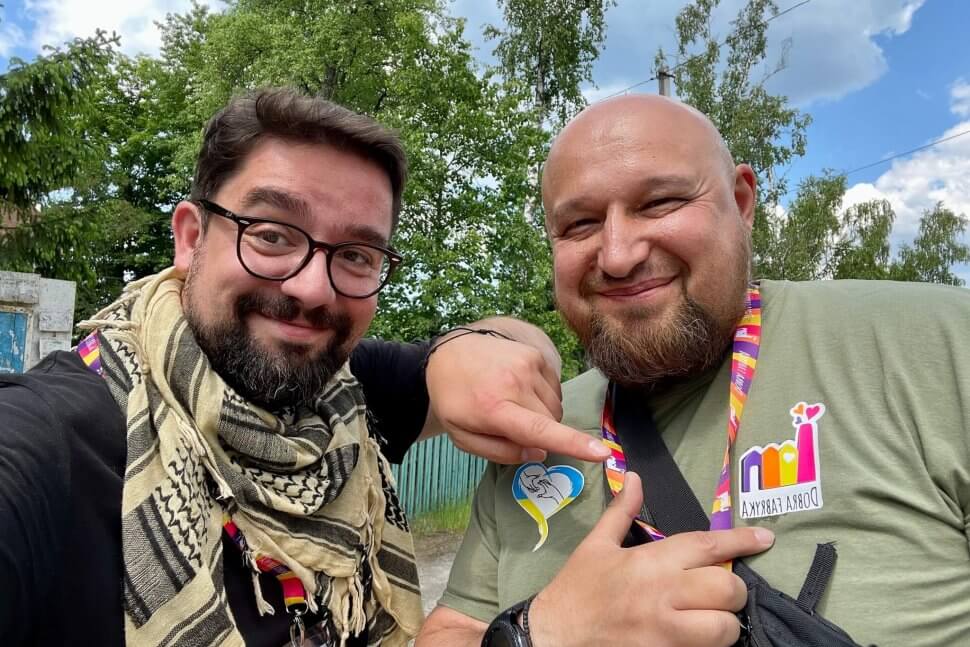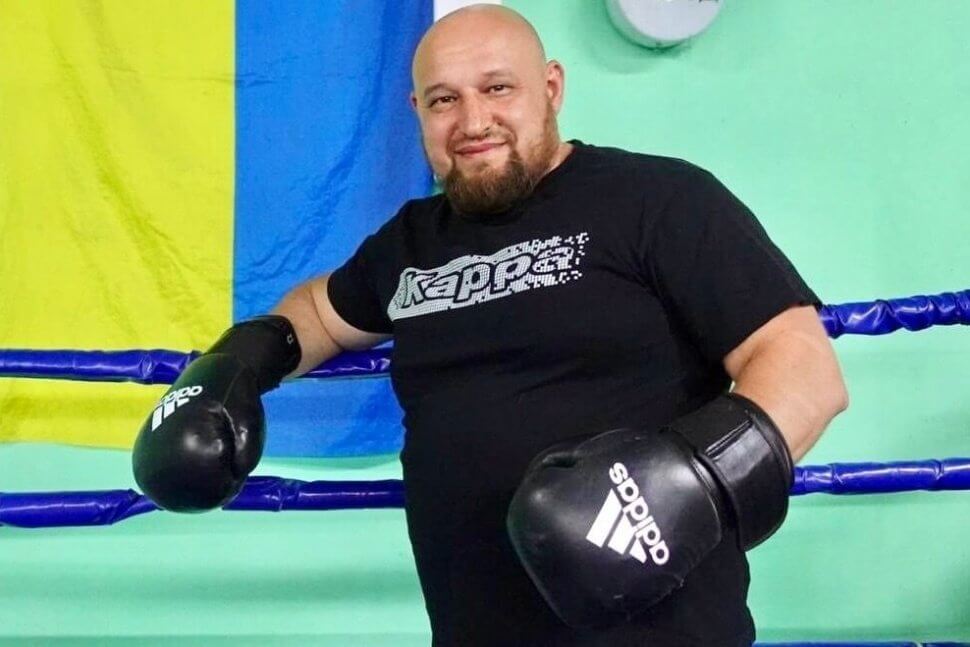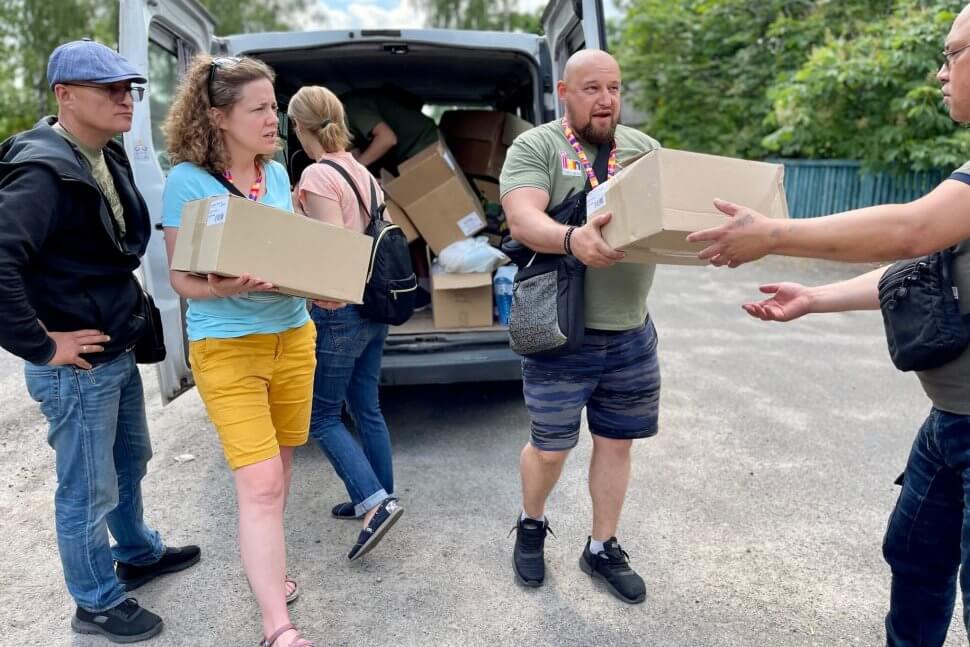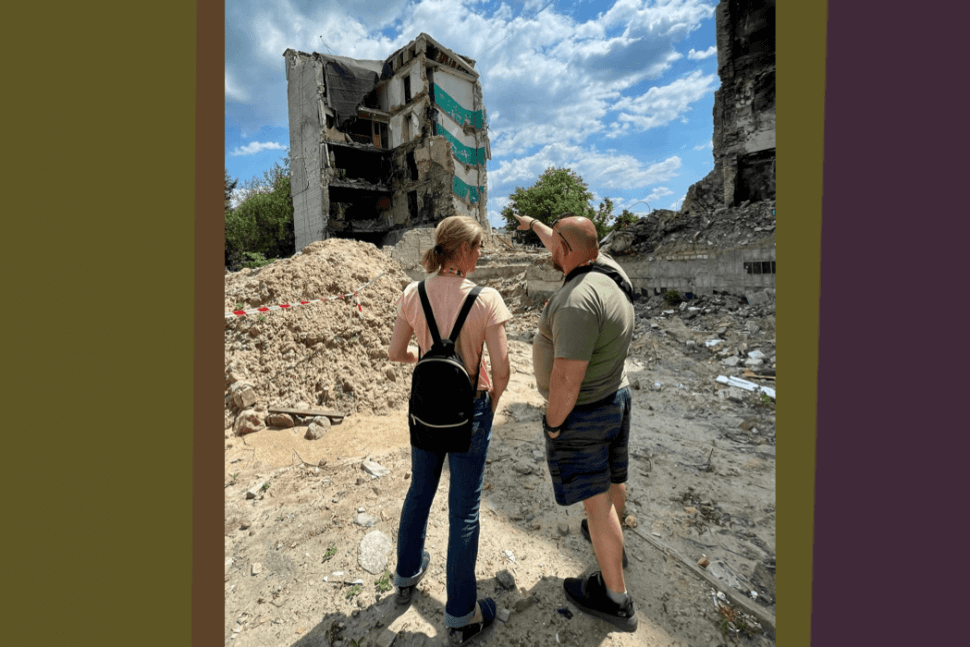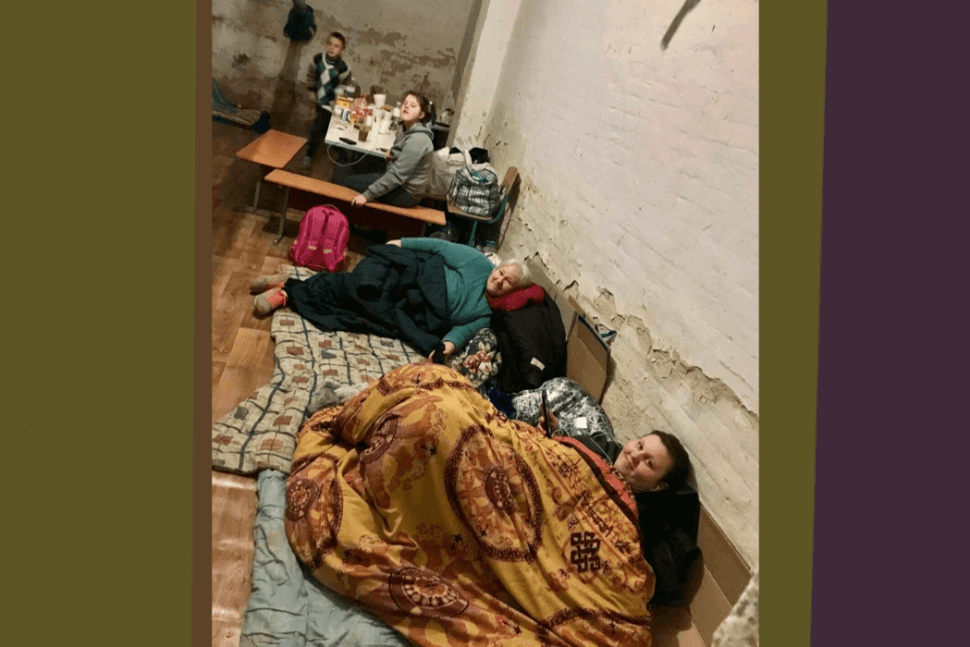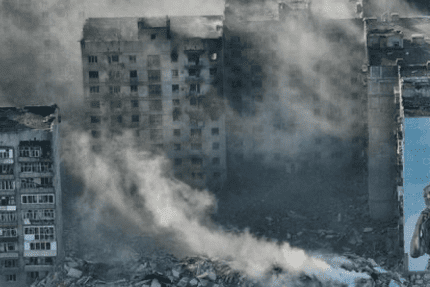We have known Yevhen since the first hours of the war in Ukraine. On the 24th of February everything changed in this country and in the lives of its people. Yevhen’s life is no longer the same as it was before the first bombs fell on the Ukrainian capital. From a professional boxer he became an efficient organiser of help for those who did not flee Kiev. These are mainly elderly, sick people for whom fleeing the war was beyond their strength and financial possibilities. They are residents of the 13th district of Kiev. One of the poorest.
Yevhen took care of those who had stayed behind. He provided them with hot meals, water and pet food. He takes us to the primary school. We greet the headmistress and go below ground. “For the first two months, 500 people lived in the basement under the classrooms. We did not move anywhere from here. The bare walls were teeming with life. We organised birthday parties for children, we played games, and we talked a lot with each other. After the Kiev area was liberated, it was difficult for us to part. We came out of the underground and decided to meet again next year, on the 24th of February, and from then on we will celebrate the anniversary of our time together in hiding,” says the school’s headmistress.
The school’s basements are now empty, but Yevhen continues helping. He makes his way to the area around Chernihiv, and went to Bucha, Irpin and Borodyanka on the second day after they were liberated. “There were still bodies lying in the streets. It was a horrible sight, but at the same time we found people who were already clearing their houses of rubble, tidying up the yards and trying to settle down again. It’s always best to be at home,” smiles Yevhen. We arrive at the village of Teterivske. Out of 800 buildings only 30 have survived. 75 people have returned to the village so far. All they have today are mined fields and piles of rubble. But they also have memories. They want things to be as they were before, so they don’t move anywhere and slowly clean up the village.
Since the beginning of the Russian attack, aid has reached 35,000 people thanks to Yevhen. Most of them are in the east, closer to the front line, where 81 tonnes of humanitarian aid has made it so far. This is still necessary, but we are also working to help the people of Kiev and the surrounding villages to regain their independence. More details will follow soon. Follow our coverage from Kiev.
If you are willing and able to do this work with us, join the fundraiser “To Help Ukraine!”
